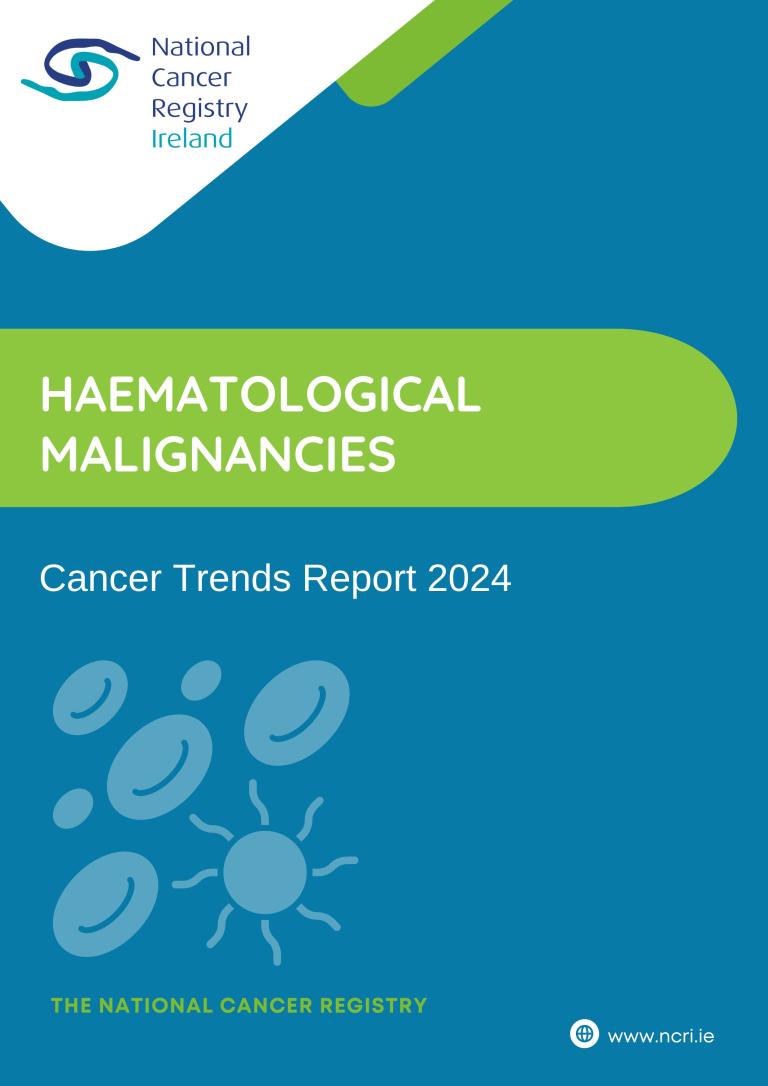Cancer trends No 41- Haematological Malignancies

New NCRI report highlights increased survival and decreasing death rates among people living with blood cancers in Ireland.
The proportion of people surviving at 5 years following diagnosis has significantly increased and death rates from blood cancers have fallen according to a new report published by the National Cancer Registry of Ireland.
Prof. Deirdre Murray, director of NCRI, and professor of epidemiology at University College Cork, noted that five-year survival for blood cancers has increased from 53% (1994-2007 cases) to 67% (2008-2021), and ongoing increases in survival are reflected in reductions in mortality. Compared to a peak in blood cancer death rates in the late 1990s mortality has since declined by over 1% annually.
Blood cancers are responsible for 10% of all new cancer diagnoses and over 8% of cancer deaths every year. Approx. 2,400 people are diagnosed with blood cancer each year in Ireland, with this number set to increase to over 3,000 new cases annually by 2030 [1].
There are many different types of blood cancer [2], and this is the first report of its kind to provide comprehensive data across these different blood cancer types. The most commonly diagnosed blood cancers were non-Hodgkin lymphoma, leukaemia, and multiple myeloma. From the mid-2000s leukaemia incidence rates declined significantly, and non-Hodgkin lymphoma rates stabilised from the mid-2010s.
Prof. Deirdre Murray said: “The report sheds light on the diversity in incidence and outcomes for blood cancers providing important data to better address the burden of blood cancer in the Irish population. The significant increases in survival and reductions in mortality reflect diagnostic and therapeutic innovations. Genetic testing has been increasingly applied to improve diagnosis and better target treatments for patients with blood cancers.”
“The advances in diagnosis and treatment over the last decades are reflected in the favourable blood cancer trends overall but more focus is needed for certain subtypes of blood cancer for which outcomes are less favourable such as acute myeloid leukaemia.”
Briefing Notes:
[1] By 2030 it is estimated that the numbers of new cases of blood cancer will go up due to the aging population in Ireland. A greater proportion of older people in the population means there is a greater number at the age where they are more likely to develop blood cancer.
[2] Blood cancers are also known as ‘haematological malignancies.' Classification of haematological malignancies is complex. This report uses the WHO classification of haematological malignancies which was collated and refined for population-based cancer registries through the HAEMACARE working group to present complete and accurate data for the full spectrum of haematological malignancies.
Share this page